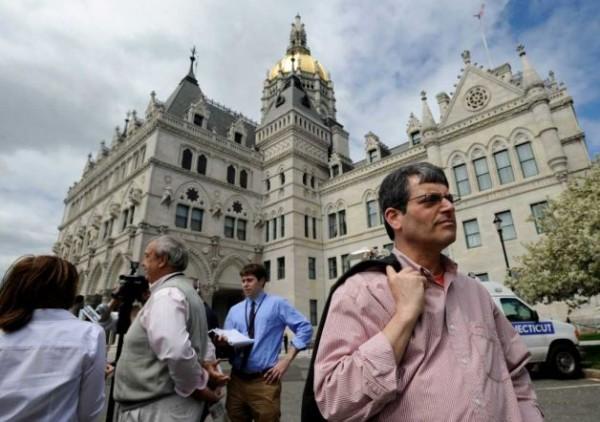 SEBAC spokesman Larry Dorman has a lot to ponder after the latest AFSCME bargaining unit rejection of the concession package.
SEBAC spokesman Larry Dorman has a lot to ponder after the latest AFSCME bargaining unit rejection of the concession package.
The third-largest bargaining unit in the state’s largest employees union rejected the concessions package put together by Gov. Dannel P. Malloy and SEBAC, the organization that represents the 15 state employees’ unions.
The 1,800 human/social services state employees in the AFSCME P-2 unit, who work in agencies such as DCF and the Department of Social Services, voted no, according to union spokesman Larry Dorman.
See his statement on what this means here.
While neither Dorman nor Malloy’s camp have publicly said the union deal is on the verge of collapse, many experts say it is heading that way.
That recent rejection puts the hopes of ratification for the $1.6 billion concession plan in the balance.
The AFSCME makes up more than 30 percent of the entire unionized employee population in the state. For the agreement to be ratified, at least 14 of the 15 unions must ratify the deal.
But, more importantly, those who vote yes must also represent more than 80 percent of all those who voted. That means a deal is nearly impossible without the support of AFSCME.
If AFSCME falls, then the plan likely goes down with it. And with a large majority of the AFSCME units already saying no, and the correctional workers only left to vote, it is unlikely that the state’s largest union will pass the concessions agreement.
The result will be a large budget gap for the state legislature and Malloy to fill, which could mean this summer will be a messy one for the state’s leaders.
Malloy has already threatened to lay off more than 7,500 state employees if the concessions don’t go through. He is expected to bring the legislature back into session, just months after a grueling budget battle and fight over a variety of issues, from paid sick leave to marijuana laws.
With the package teetering on the brink of failure, state employees, who played a major role in getting the Democrat, Malloy, elected over Republican Tom Foley by a small margin last November, are left to ask themselves. Will he really follow through with his threat?
Here are a few other stories relating to the concessions deal, from Hearst Connecticut Newspapers:
- SEBAC spokesmen accuse a conservative policy group of tampering with the union vote. The group, Yankee Institute for Public Policy, fiercely denies that claim.
- Explaining the voting process. Not every union is using paper ballots, some are allowing their members to vote online.
- Brian Lockhart breaks down the “complex process” behind the union voting.
- Ken Dixon provides a look into how the deal came to fruition, back when it seemed like Malloy had scored a major victory.